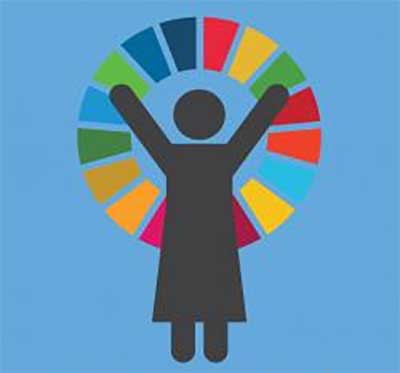Date: 11/03/2023
Relevance: GS-2 : Social Justice
Key Phrases: Sustainable Development Goals (SDGs), Lancet Study, National Family Health Survey (NFHS), Achieved-I, Achieved-II, On-Target, Off-Target, Anemia among women, Pregnant and non-pregnant women.
Reference:
- A recent analysis published in The Lancet has concluded that India is not on-target to achieve 19 of the 33 Sustainable Development Goals (SDGs) indicators.
Key Highlights
- The study was conducted by collecting data on children and adults from two rounds of the National Family Health Survey (NFHS) conducted in 2016 and 2021.
- They identified 33 indicators that cover 9 of the 17 official SDGs.
- They used the goals and targets outlined by the Global Indicator Framework, Government of India and World Health Organisation (WHO) to determine SDG targets to be met by 2030.
- They classified India and each district as Achieved-I, Achieved-II, On-Target and Off-Target.
- Classification:
- Achieved-I
- Districts that have already met the SDG target by 2021 and have either observed an improvement between 2016 and 2021 or a worsening small enough in magnitude between 2016 and 2021 such that they will still maintain their achieved status by 2030.
- Achieved-II
- Districts that have already met the SDG target by 2021 but have observed a worsening magnitude of change between 2016 and 2021.
- If this trend continues, the status of these districts as achieved will be undone by 2030.
- On-Target
- Districts that have not met the SDG target by 2021 and have observed a magnitude of improvement between 2016 and 2021 sufficient to meet the target by 2030.
- Off-Target
- Districts that have not met the SDG target by 2021 and either observed worsening between 2016 and 2021 or observed an insufficient magnitude of improvement between 2016 and 2021.
- If these districts continue with either of these trends, they will not meet their targets by 2030.
- Achieved-I
Gloomy Picture
- Because of a worsening trend observed between 2016 and 2021, many districts will never meet the SDGs targets even well after 2030.
- The critical off-target indicators include access to basic services, wasting and overweight children, anaemia, child marriage, partner violence, tobacco use, and modern contraceptive use.
- For these indicators, more than 75% of the 707 districts analysed were off-target.
- These off-target districts are concentrated in the States of Madhya Pradesh, Chhattisgarh, Jharkhand, Bihar, and Odisha.
- The situation has also worsened for three of the off-target goals including those relating to anaemia among women, pregnant and non-pregnant women, between 2016 and 2021.
Sustainable Development Goals (SDGs)
- About :
- In 2015, the United Nations General Assembly officially launched the Sustainable Development Goals.
- SDGs were adopted as a universal call to action to end poverty, protect the planet, and ensure that by 2030 all people enjoy peace and prosperity.
- Over 150 world leaders representing 193 countries committed to working towards the SDGs through their policies.
- India is one of the signatory countries that has committed to achieving these goals by 2030.
- There are 17 SDGs focused on five elements: people, planet, peace, prosperity, and partnership.
- Background :
- Originally, the UN and its members signed the Millennium Development Goals (MDGs) in 2001. They expired in 2015.
- The United Nations took what worked from the MDGs and used those learnings to form the SDGs.
- Sustainable Development :
- Development which meets the needs of the present without compromising the ability of future generations to meet their own needs.
- This most widely accepted definition of Sustainable Development was given by the Brundtland Commission in its report Our Common Future (1987).

Key Findings of the Study
- The five indicators with the highest number of districts that
have met the target are
- Adolescent pregnancy (684 districts)
- Tobacco use in women (478)
- Multidimensional poverty (370)
- Teenage sexual violence (340)
- Electricity access (306).
- The five indicators with the most districts on-target are :
- Bank accounts (624 districts)
- Improved sanitation (553)
- Full vaccination (538)
- Internet use (502)
- Skilled birth attendants (438).
- Indicators with the largest number of off-target districts include
- Anaemia in women (644 districts)
- Anaemia in non-pregnant women (643)
- Access to basic services (613)
- Anaemia in pregnant women (606)
- Health insurance for women (591).
- For districts that are off-target on a given indicator, the time it will take to meet the SDG target post-2030 varies substantially.
- Indicators with most districts that will never meet their targets at
all are:
- Anaemia among women (430).
- Anaemia in non-pregnant women (430).
- Anaemia in pregnant women (396).
- Wasting and overweight children (330)
- Partner’s sexual violence (291).
Way Forwards
- A mid-line assessment of districts’ progress on SDGs suggests an urgent need to increase the pace and momentum on four SDG goals - no poverty, zero hunger, good health and well-being and gender equality.
- Meeting SDG goals will require prioritizing and targeting specific areas within India.
- Given that the various SDGs fall within tightly structured ministries, there is a case to establish inter-ministerial initiatives, with clear governance structures under the Prime Minister’s Office.
- Similar structures could be developed at the state level under the respective chief minister’s office
Conclusion
- As India rapidly moves forward as a leading economic player in the world economy, its full realization will crucially depend on addressing some of the more basic health and social determinants of these critical health-related SDGs.
Source: The Hindu
Mains Question:
Q. Discuss why India needs to urgently conduct an appraisal of the policies and programs that relate to SDGs, especially those that relate to four SDG targets relating to no poverty, zero hunger, good health and well-being and gender equality. (250 Words).







